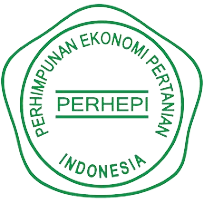Financial Insights and Risk Attitudes: Driving Firm Performance in Malang's Food and Beverage SMEs
DOI:
10.25047/jmaa.v4i2.99Downloads
Abstract
This study aims to analyze and understand the relationship between financial knowledge, financial behavior, and firm performance. The study was conducted on 120 food and beverage SMEs in Malang. The sampling technique used was purposive sampling with several criteria. The sample size was determined by multiplying 12 research indicators by 10, following the approach of JR. et al. (2022). The data analysis in this study used SEM-PLS, assisted by the SmartPLS 3.3.3 software. The results indicate that financial behavior and financial risk attitude significantly affect firm performance, while the relationship between financial knowledge and firm performance yielded different results. The testing shows that financial knowledge does not significantly affect firm performance. Furthermore, these findings suggest that the level of financial knowledge among SME actors in Malang does not sufficiently support the improvement of SME firm performance. The low level of financial knowledge also leads SME actors to be more cautious in making financial and business decisions, as they can better assess the extent of business and financial risks they may face. Therefore, further training is needed to enhance the financial knowledge and capabilities of SME actors, particularly in the field of finance.
Keywords:
financial knowledge financial behavior financial risk attitude firm performanceReferences
[1] Kemenkopukm, “Perkembangan Data Usaha Mikro , Kecil , Menengah Dan Usaha Besar,” Www.Depkop.Go.Id. [Online]. Available: Www.Depkop.Go.Id
[2] M. Latief, “Masih Banyak Pelaku UMKM ‘Buta’ Akuntansi,” Money.Kompas.Com. [Online]. Available: https://money.kompas.com/read/2018/08/30/144531526/masih-banyak-pelaku-umkm-buta-akuntansi
[3] J. G. R. Barbeauld and T. McMahan, Knowledge Risk Management. Springer International Publishing, 2020. doi: https://doi.org/10.1007/978-3-030-35121-2.
[4] K. Takemura, “Behavioral Decision Theory. In Behavioral Decision Theory:Psychological and Mathematical Descriptions of Human Choice Behavior,” Springer Japan, vol. 12, 2014, doi: https://doi.org/10.1007/978-4-431-54580-4.
[5] A. Atkinson and F.-A. Messy, “Measuring Financial Literacy: Results of the Oecd Infe Pilot Study,” OECD, 2012, doi: https://dx.doi.org/10.1787/5k9csfs90fr4-en.
[6] A. Jalali, M. Jaafar, and T. Ramayah, “Organization-stakeholder relationship and performance of Iranian SMEs: Examining the separate mediating role of innovativeness and risk-taking,” Int. J. Islam. Middle East. Financ. Manag., vol. 13, no. 3, 2020, doi: https://doi.org/10.1108/IMEFM-11-2018-0407.
[7] N. Chatterjee and N. Das, “A Study on the Impact of Key Entrepreneurial Skills on Business Success of Indian Micro-entrepreneurs: A Case of Jharkhand Region,” Sage Journals, vol. 17, no. 1, 2016, doi: https://doi.org/10.1177/0972150915610729.
[8] A. Abiodun Eniola and H. Entebang, “Financial literacy and SME firm performance,” Int. J. Res. Stud. Manag., vol. 5, no. 1, 2016, doi: https://doi.org/10.5861/ijrsm.2014.854.
[9] K. Goswami, B. Hazarika, and K. Handique, “Determinants of financial risk attitude among the handloom micro-entrepreneurs in North East India,” Asia Pacific Manag. Rev., vol. 22, no. 4, 2017, doi: https://doi.org/10.1016/j.apmrv.2017.07.013.
[10] I. Bekir and F. Doss, “Status quo bias and attitude towards risk: An experimental investigation,” Manag. Decis. Econ., vol. 41, no. 5, pp. 827–838, 2020, doi: https://doi.org/10.1002/mde.3140.
[11] S. Adomako, A. Danso, and J. O. Damoah, “The Moderating Influence of Financial Literacy on The Relationship Between Access to Finance and Firm Growth in Ghana,” Ventur. Cap., vol. 18, no. 1, pp. 43–61, 2016, doi: https://doi.org/10.1080/13691066.2015.1079952.
[12] A. Santoso, “Analysis of the Influence of Student Internal Factors and Marketing Mix on Tea Purchasing Decisions (Case Study of Boarding School Students in Semarang),” J. Soc. Cult. Dyn. Univ. Semarang, 2009.
[13] D. Games and R. P. Rendi, “The effects of knowledge management and risk taking on SME financial performance in creative industries in an emerging market: the mediating effect of innovation outcomes,” J. Glob. Entrep. Res., vol. 9, no. 44, 2019, doi: https://doi.org/10.1186/s40497-019-0167-1.
[14] A. Lusardi and O. S. Mitchell, “The economic importance of financial literacy: Theory and evidence,” J. Econ. Lit., vol. 52, no. 1, 2014, doi: 10.1257/jel.52.1.5.
License
Copyright (c) 2024 Fitria, Cicik Retno Wati, Wildan Fadhila

This work is licensed under a Creative Commons Attribution 4.0 International License.
You are free to:
- Share — copy and redistribute the material in any medium or format for any purpose, even commercially.
- Adapt — remix, transform, and build upon the material for any purpose, even commercially.
The licensor cannot revoke these freedoms as long as you follow the license terms.
Under the following terms:
- Attribution — You must give appropriate credit, provide a link to the license, and indicate if changes were made. You may do so in any reasonable manner, but not in any way that suggests the licensor endorses you or your use.
- No additional restrictions — You may not apply legal terms or technological measures that legally restrict others from doing anything the license permits.
Notices:
You do not have to comply with the license for elements of the material in the public domain or where your use is permitted by an applicable exception or limitation.
No warranties are given. The license may not give you all of the permissions necessary for your intended use. For example, other rights such as publicity, privacy, or moral rights may limit how you use the material.






